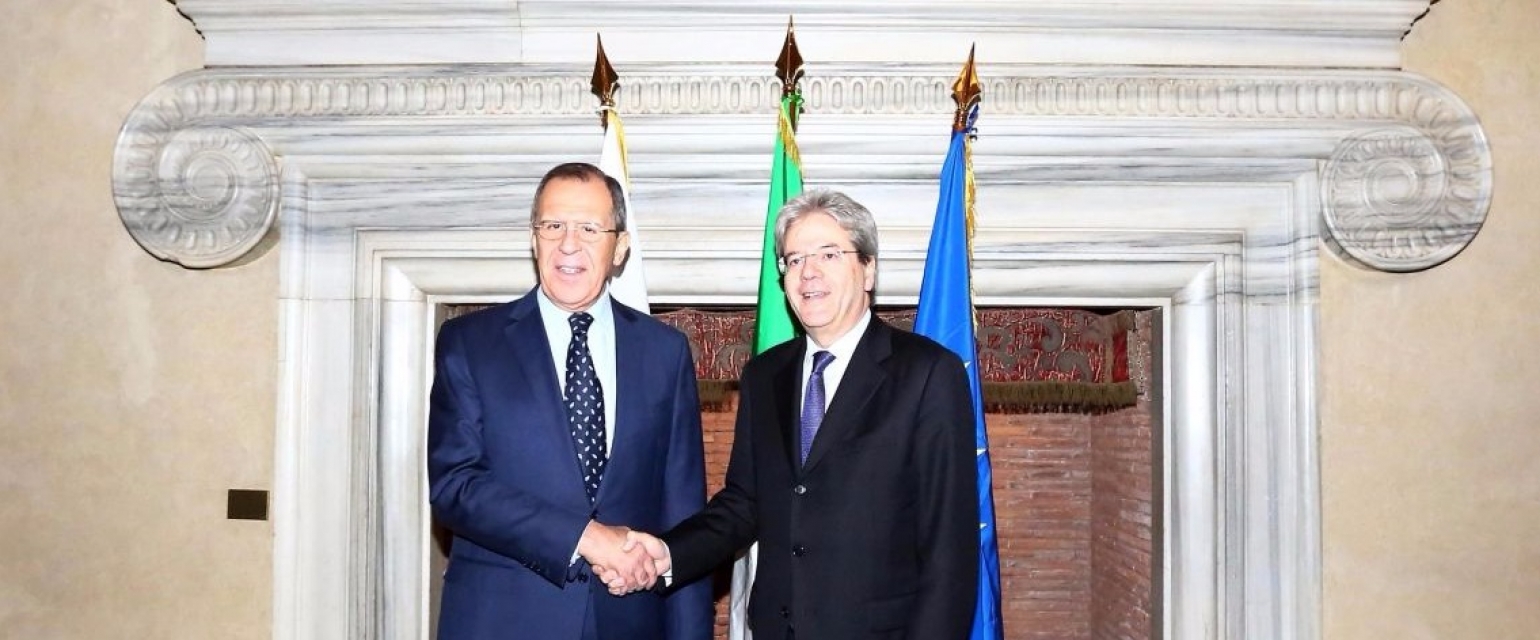

Sergey Lavrov's diplomatic visit to Italy, Ukraine's looming debt default and Moscow’s controversial decision to ignore some rulings of international courts - all this made headlines.
Last week, right before Foreign Minister Sergey Lavrov's diplomatic visit to Italy, Rome announced that it would temporarily block the renewal of EU sanctions against Russia. In the meantime, the issue with Ukraine's refusal to repay its debt to Russia has not been resolved, and it became clear that a compromise was not likely to be found before the end of the year. Finally, another important development was the change in Russian legislation that now establishes the priority of national law over international court rulings.
Italy takes a stand against the renewal of sanctions
On Dec. 9, the EU made an unexpected move and did not automatically renew sanctions against Russia. The initiative was blocked by Italy. Rome stated that the issue was extremely important, so it needed to be discussed at the top level first, for example, on Dec. 14 at the Foreign Affairs Council or on Dec. 17-18 at the European Council.
Clearly, this is just a delay. The sanctions are likely to be prolonged. Still, the Italian protest introduces a number of pertinent elements into the sanctions war between Russia and the West.
First, after Rome's public act of defiance, the EU can no longer conceal that its members have very different opinions on sanctions in particular, and Russia-Europe relations in general. Europe understands that the conflict with Russia needs to be resolved, for it is detrimental to both Brussels and Moscow. It is important to point out that Italy's actions create a major precedent.
Second, admitting that the situation is ambivalent and needs to be discussed can lead to an interesting conundrum in February 2016, when Kiev fails to meet the deadlines for passing a number of regulations required under the Minsk Protocol.
It is possible that the West will again blame Russia for the disruption of the peace process, for it is common knowledge that failure to fulfill the conditions of the Minsk Protocol is the official reason for keeping sanctions against Russia.
However, if the disagreement over Russia widens the gap between the EU members, one of them might pose a logical question, "If Ukraine is jeopardizing the agreement, why should Russia be punished for it?" And neither Brussels, nor even Washington will be able to come up with an answer.
Continue reading at Russia Direct
Many opponents of Russia are already regarding this as his surrender of the southeast of Ukraine; however in reality, this is just one more step towards the realization of Russian interests in Ukraine. The goal is to minimize potential damage.
In the Russian public consciousness, however, the South Caucasus and its problems are viewed less through the lens of ideology and more as a pragmatic reality. Nevertheless, the Russian side needs guarantees that an attack similar to the Georgian aggression of 2008 will never be repeated.
The Ukraine crisis is not a “thing unto itself,” but a reflection of the general post-Cold War crisis in European security and the affirmation of unipolarity, which Moscow rejects. Hence, a Donbass settlement cannot be limited to the withdrawal of heavy equipment and weapons. It needs to be part of the overall transformation of security in Europe.
A number of major international summits were held last week, the most important ones being the United Nations Conference on Climate Change in Paris and the OSCE meeting in Belgrade. In Russia, however, all eyes were on President Vladimir Putin's annual address to the Federal Assembly, which traditionally contains important statements on the country's domestic and foreign policies.